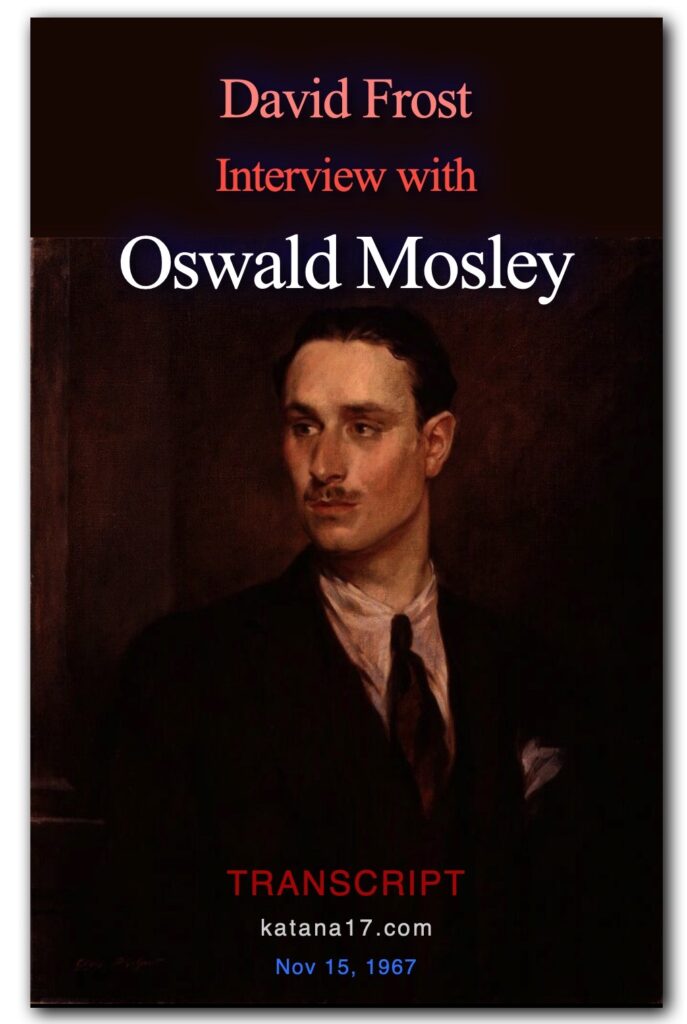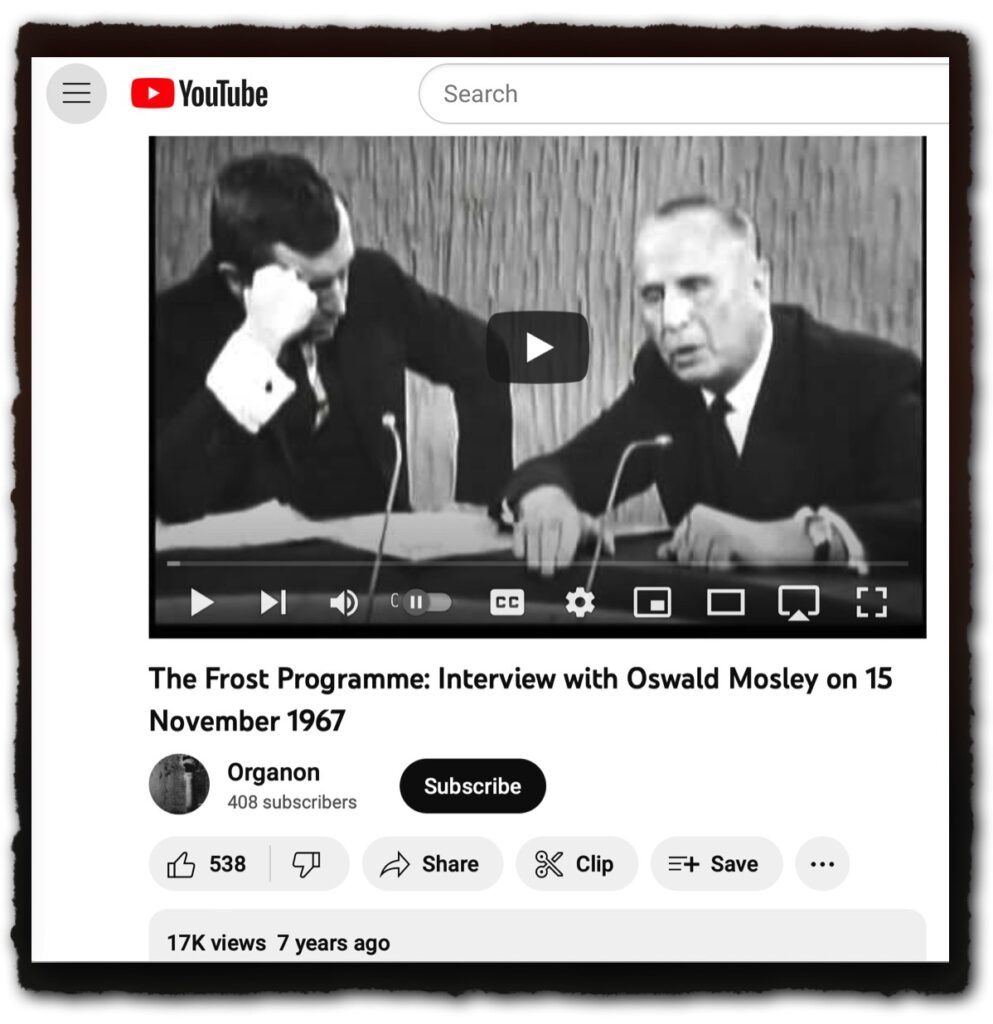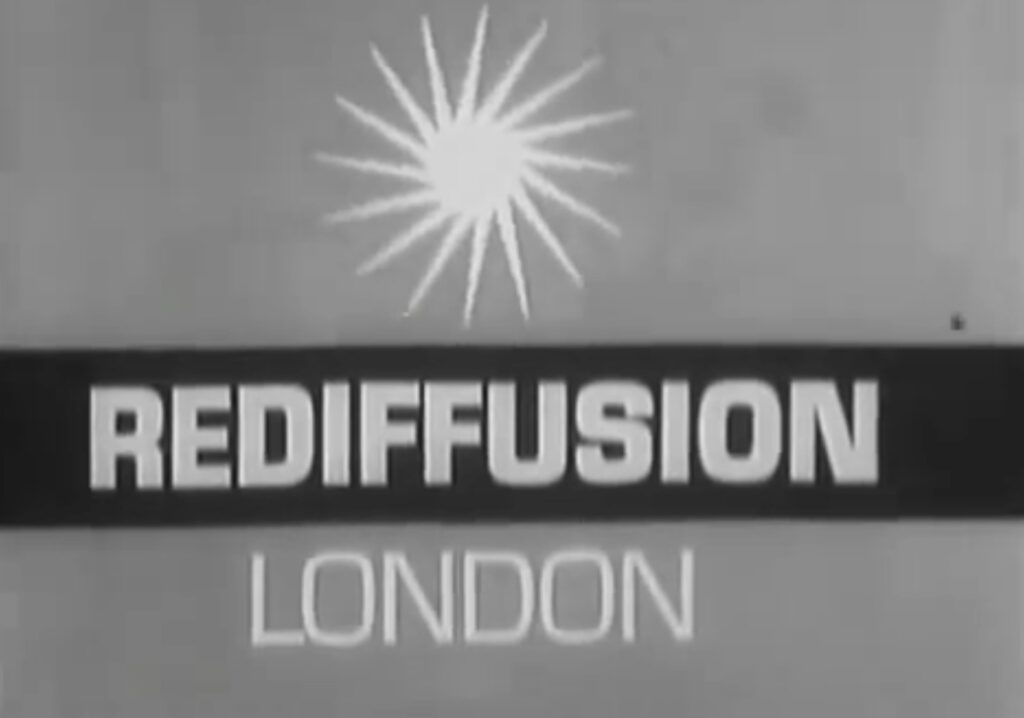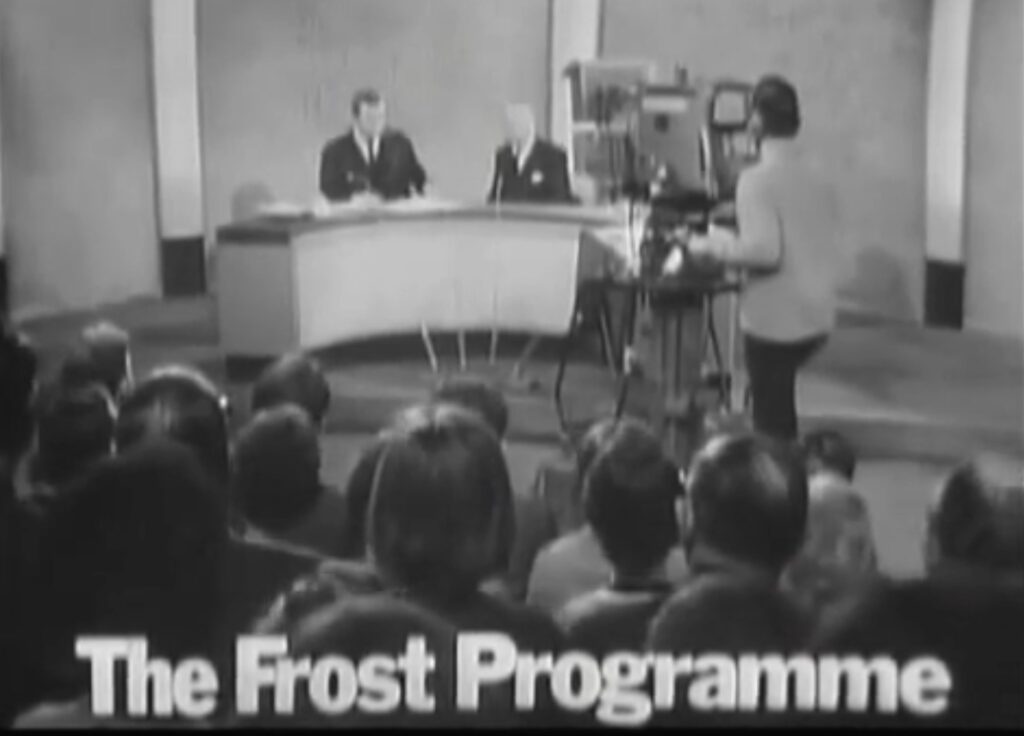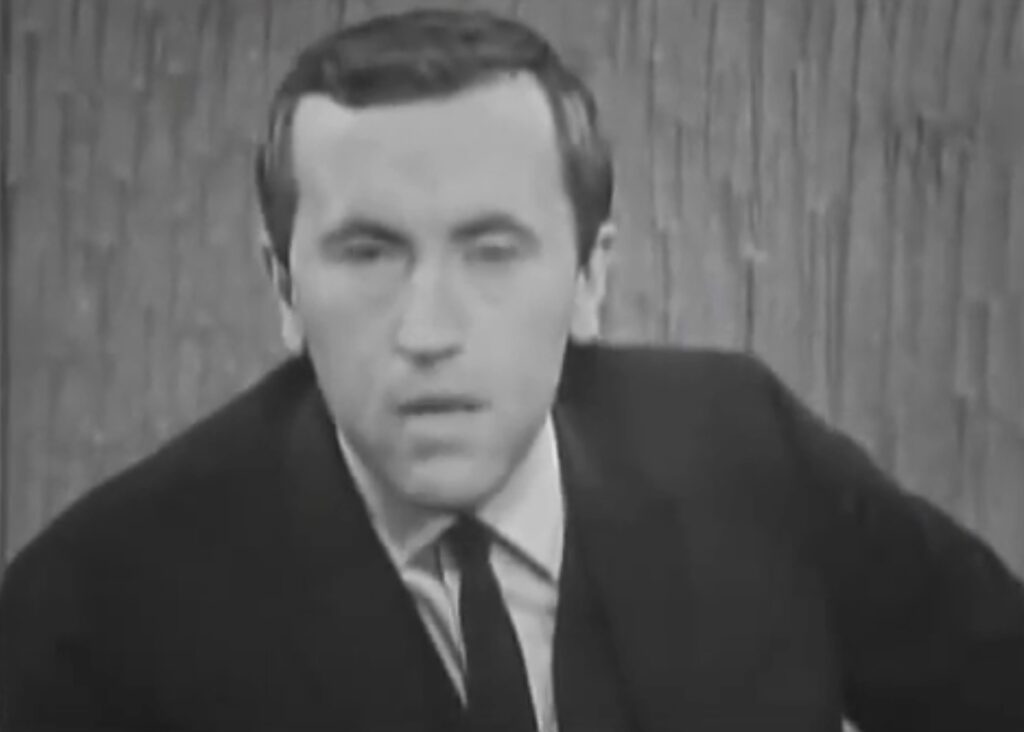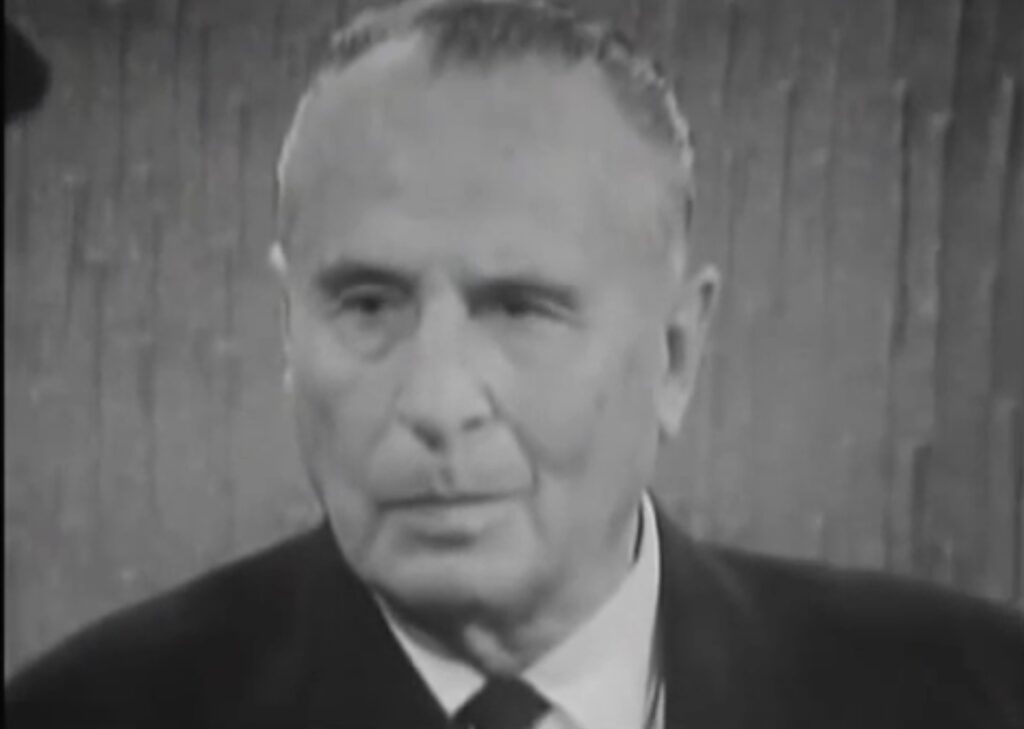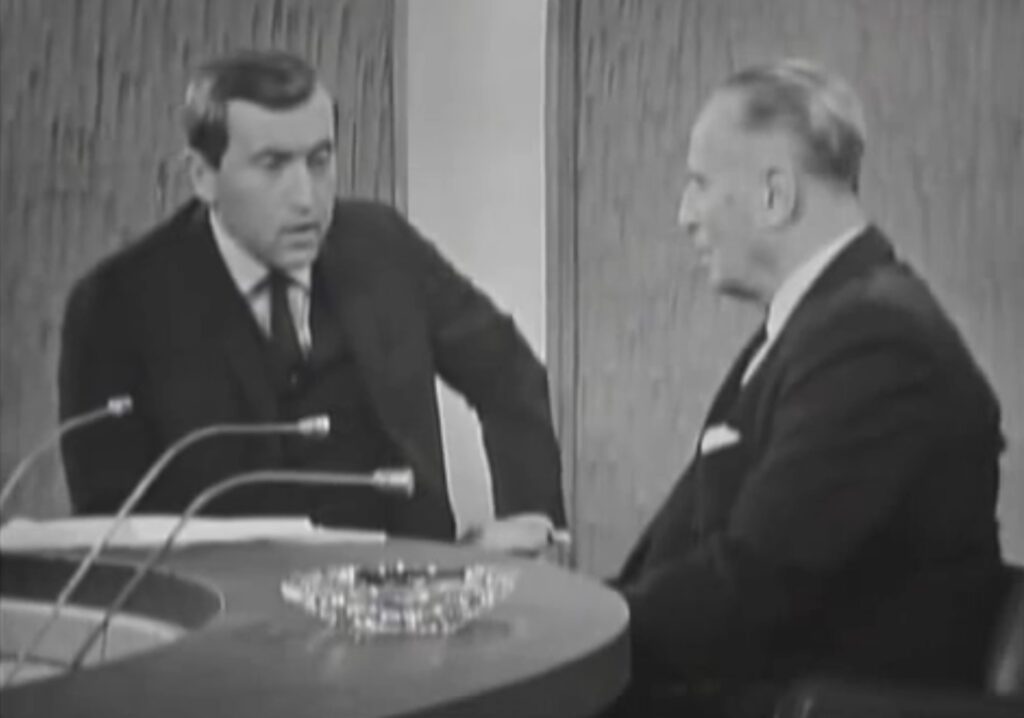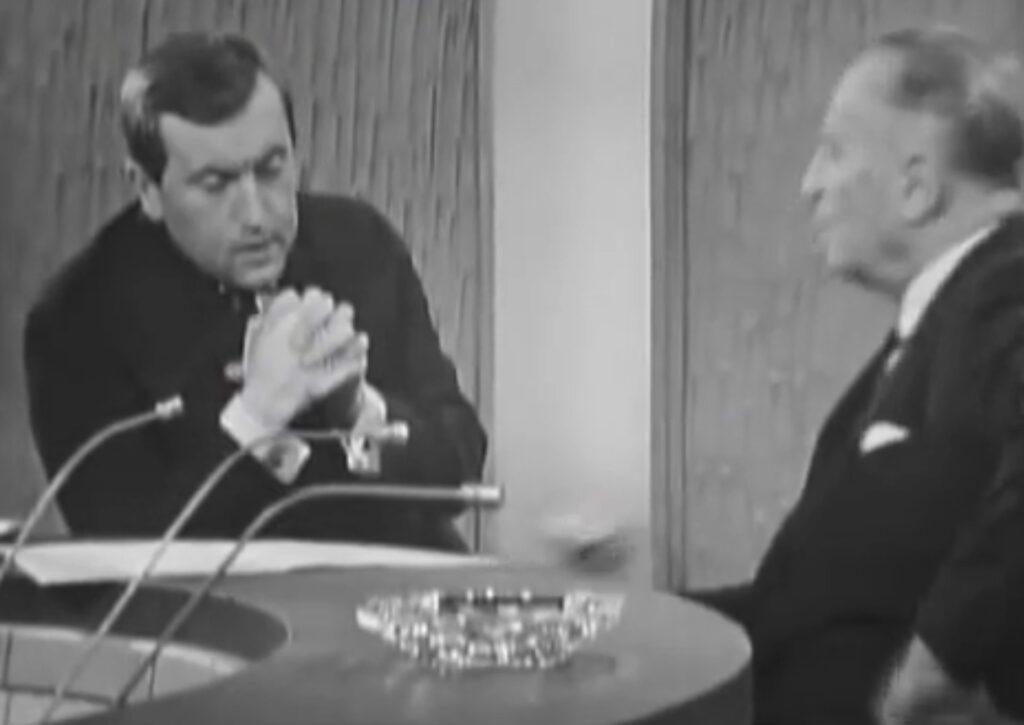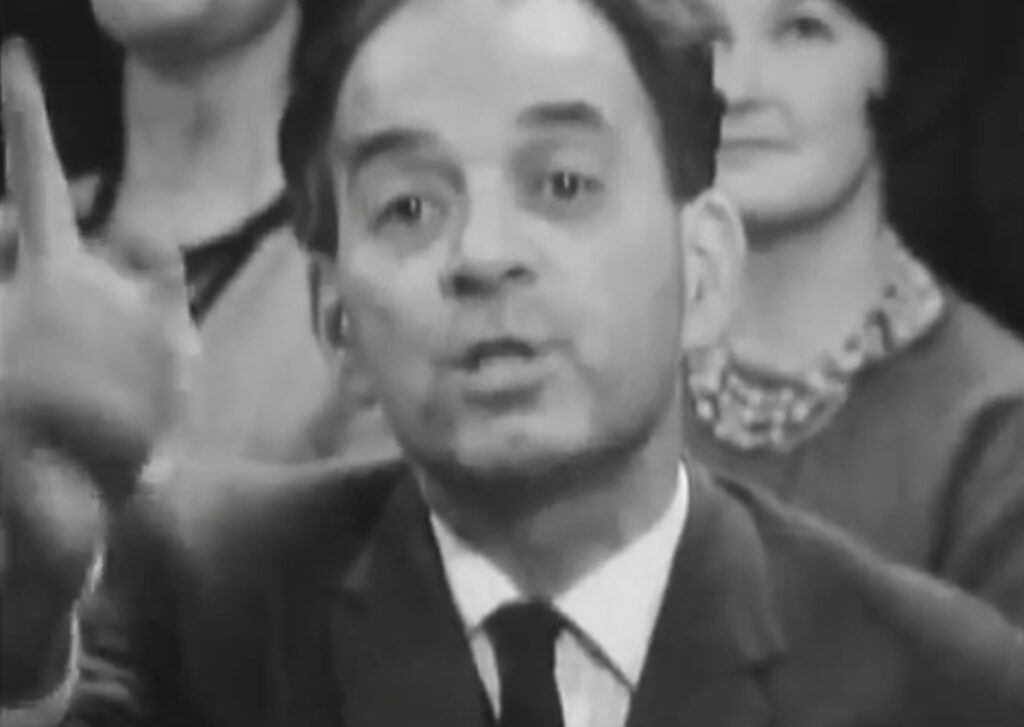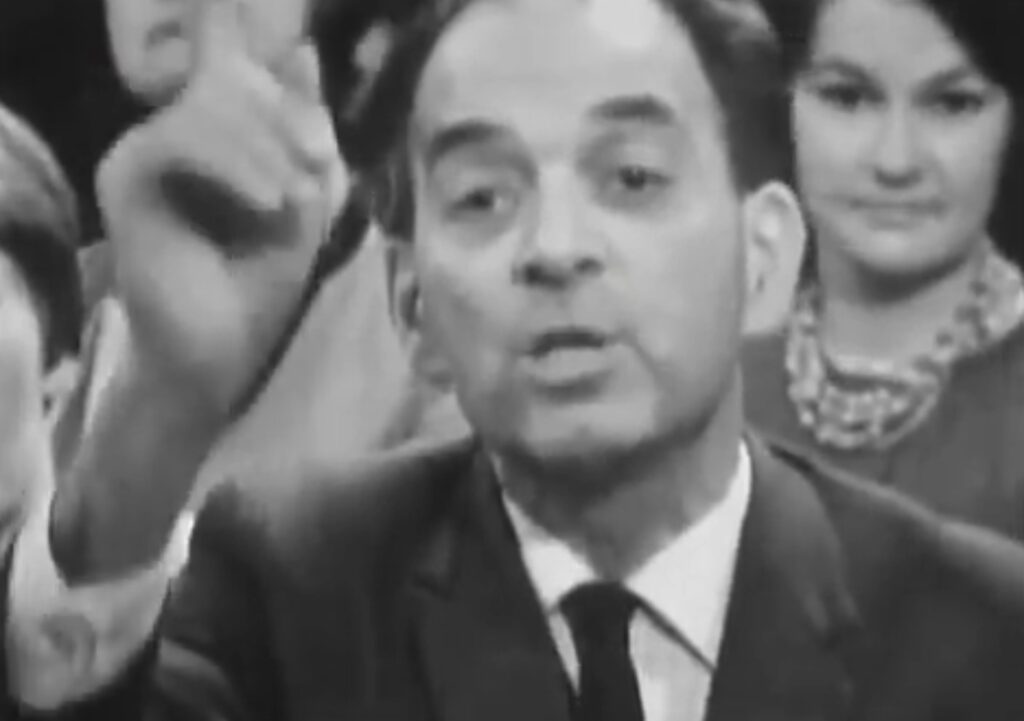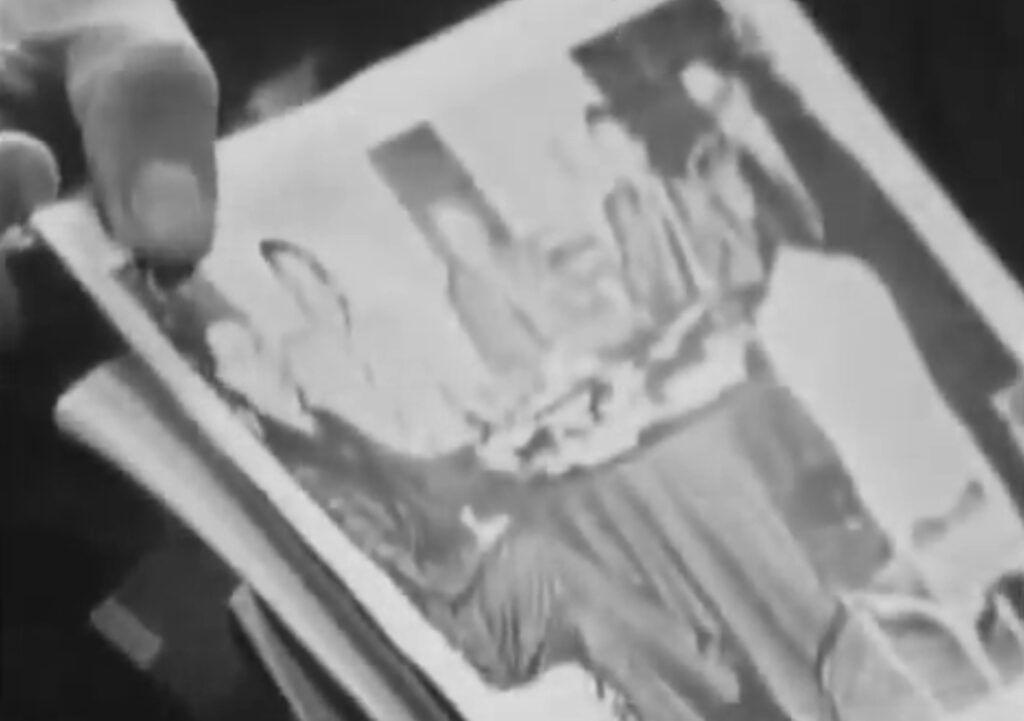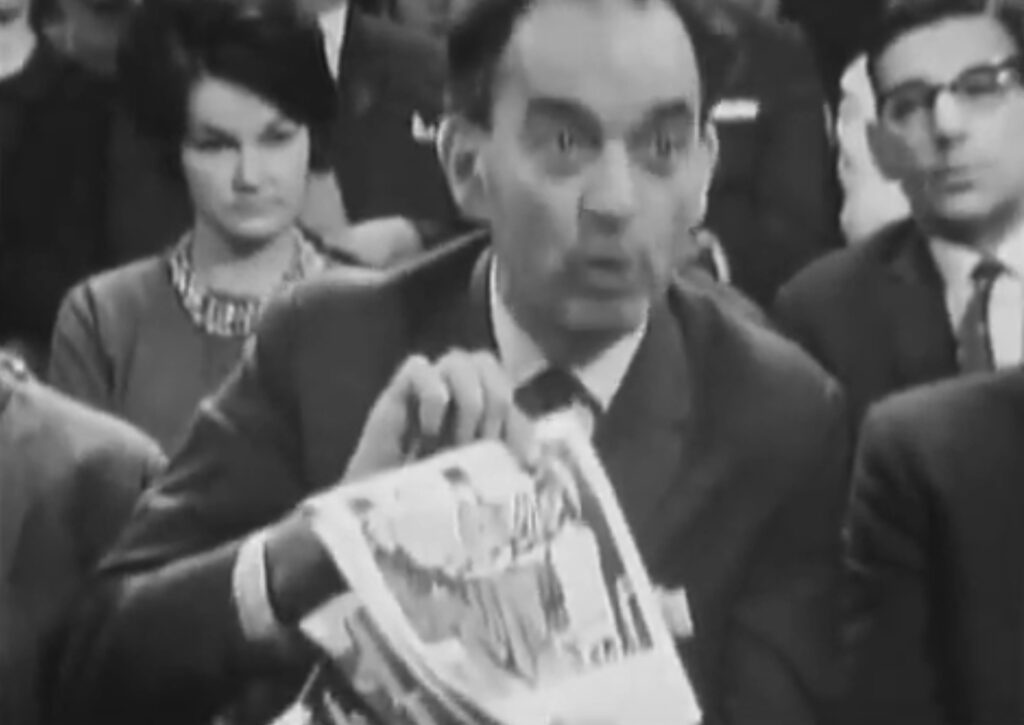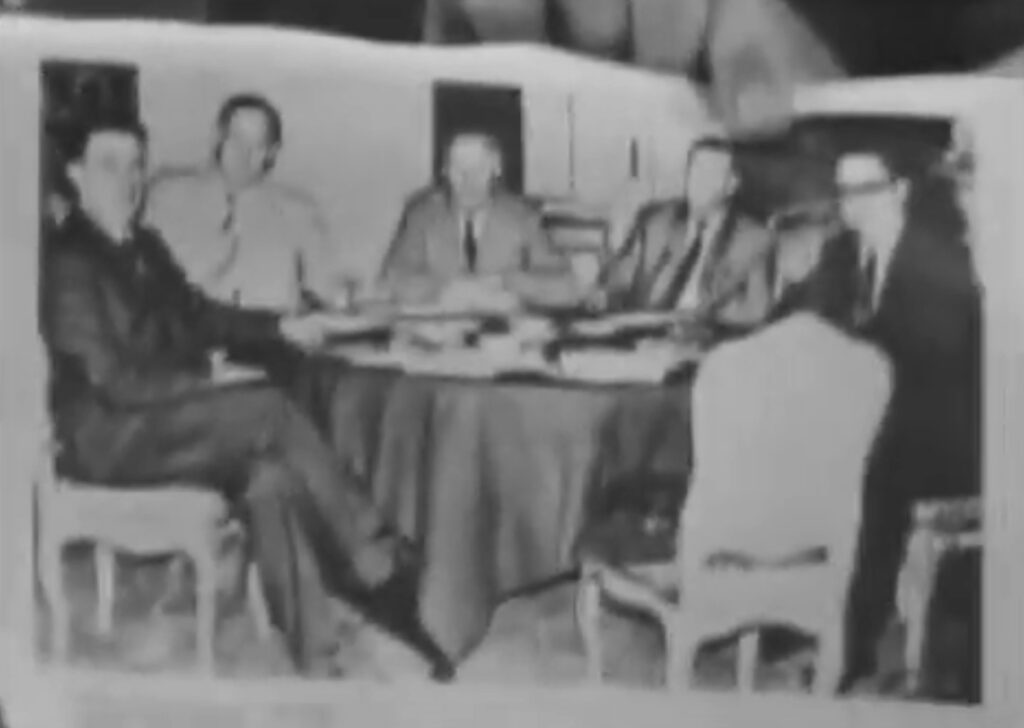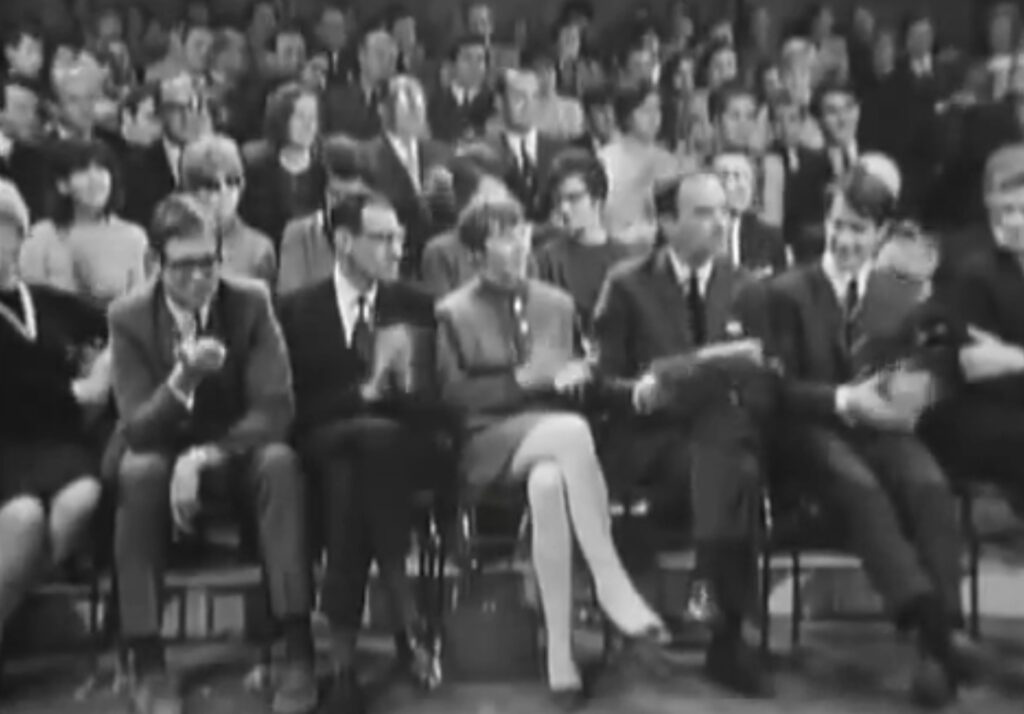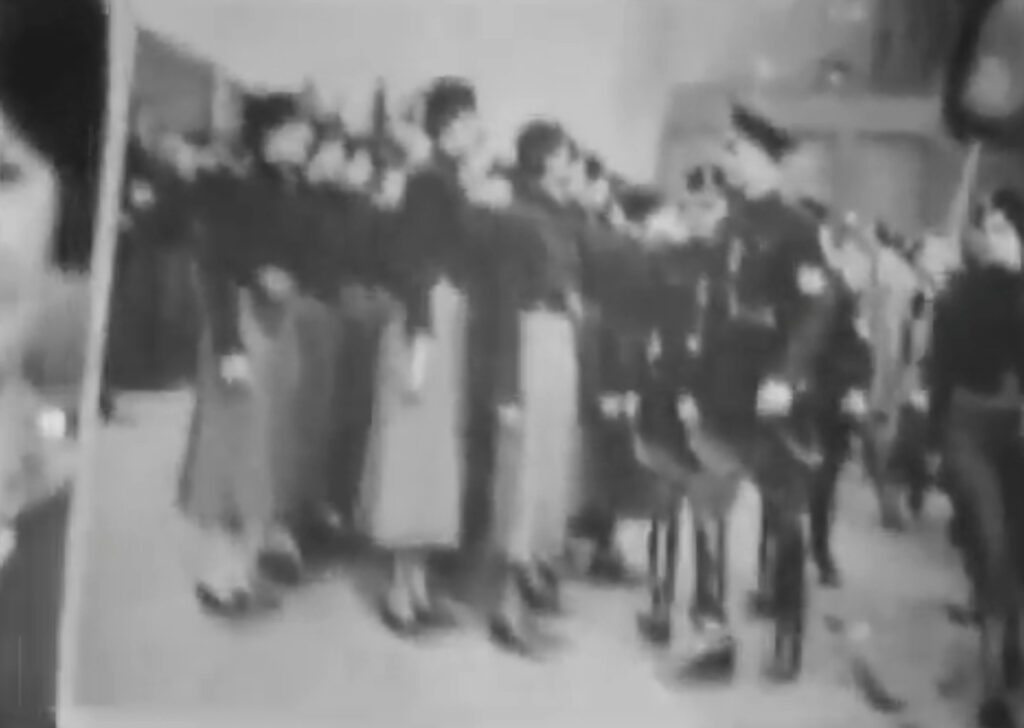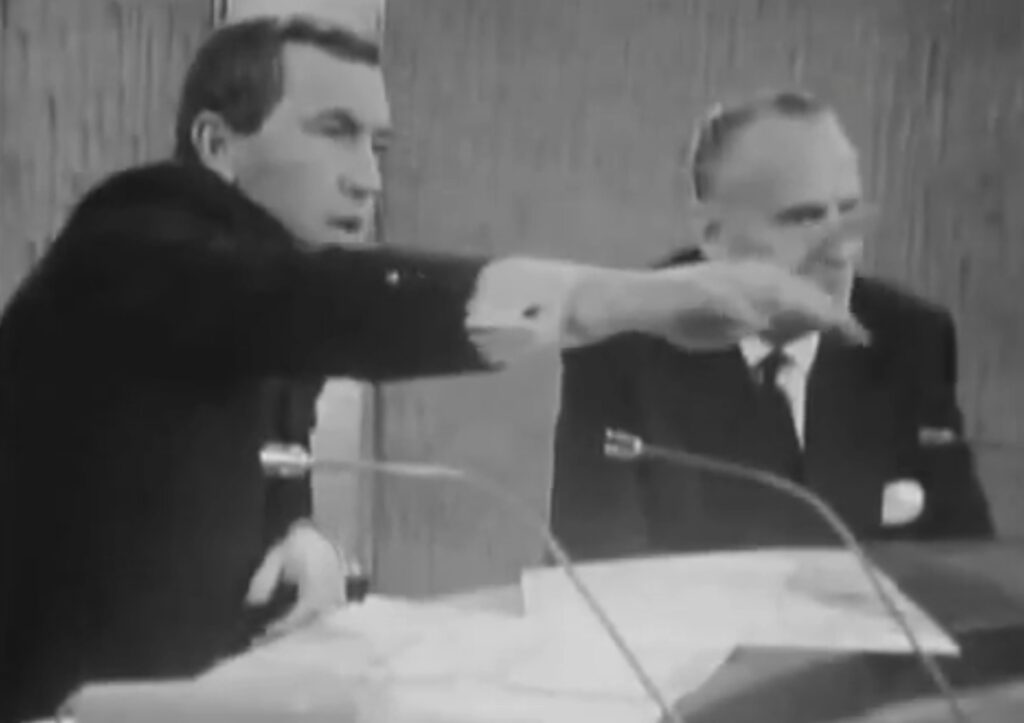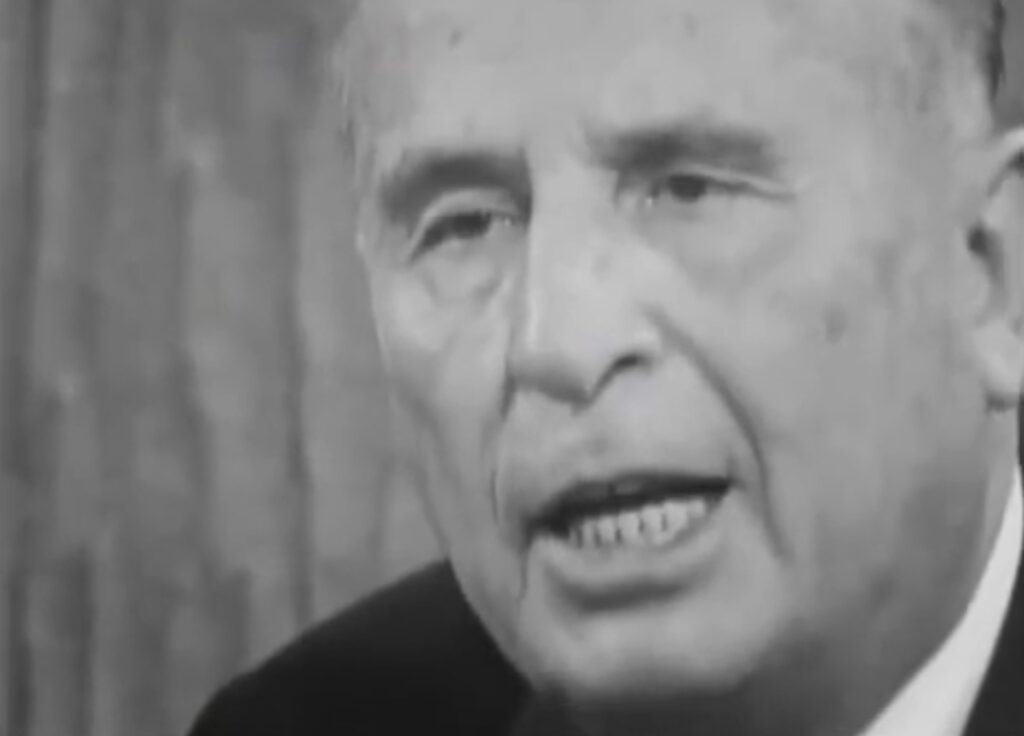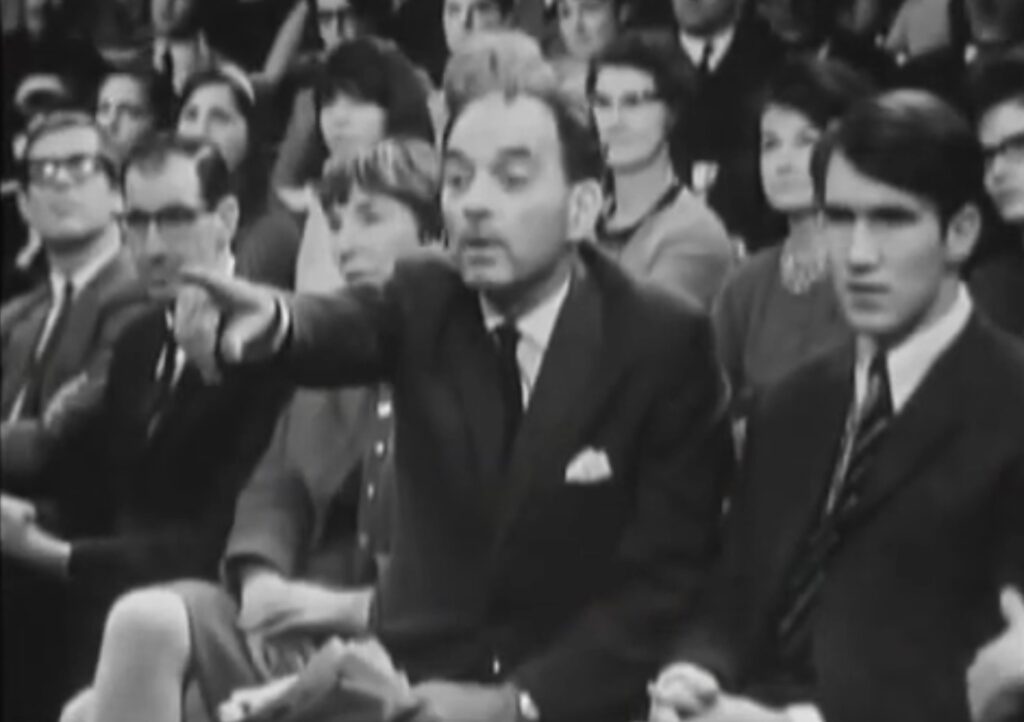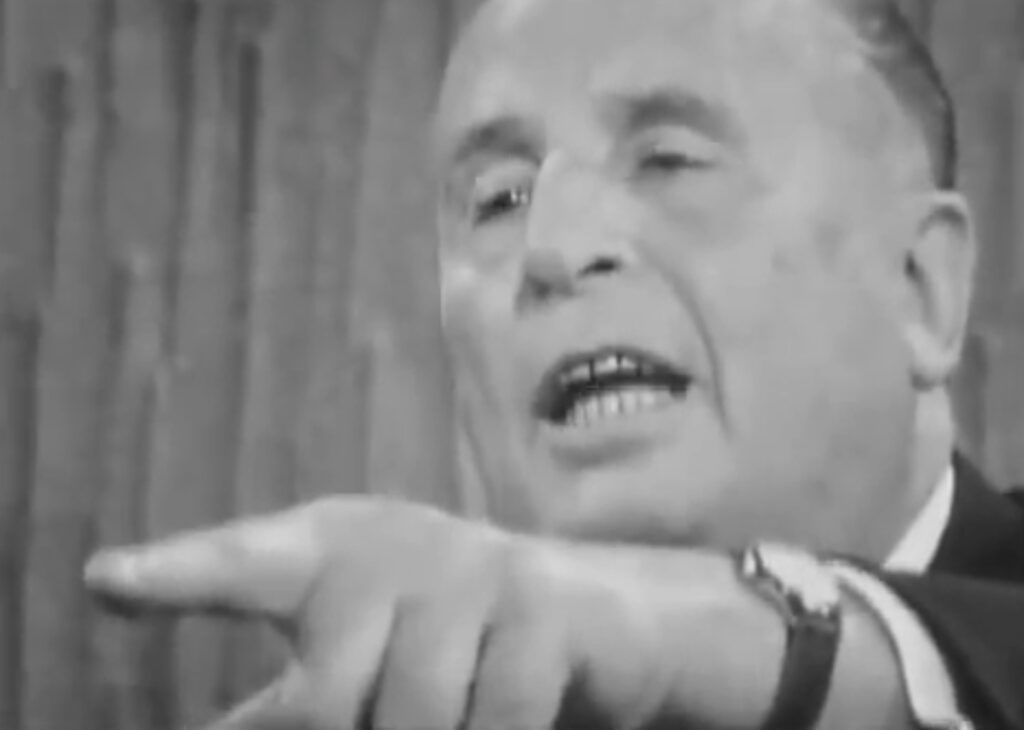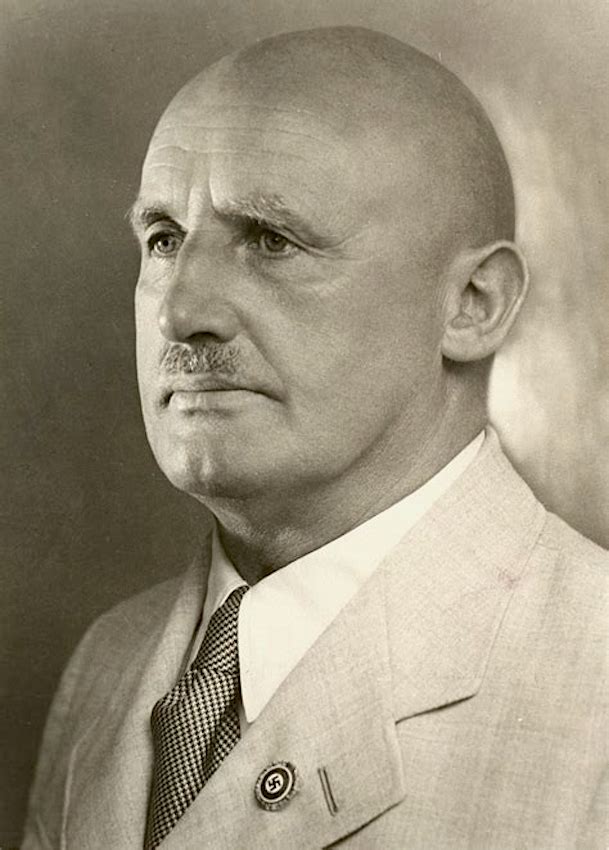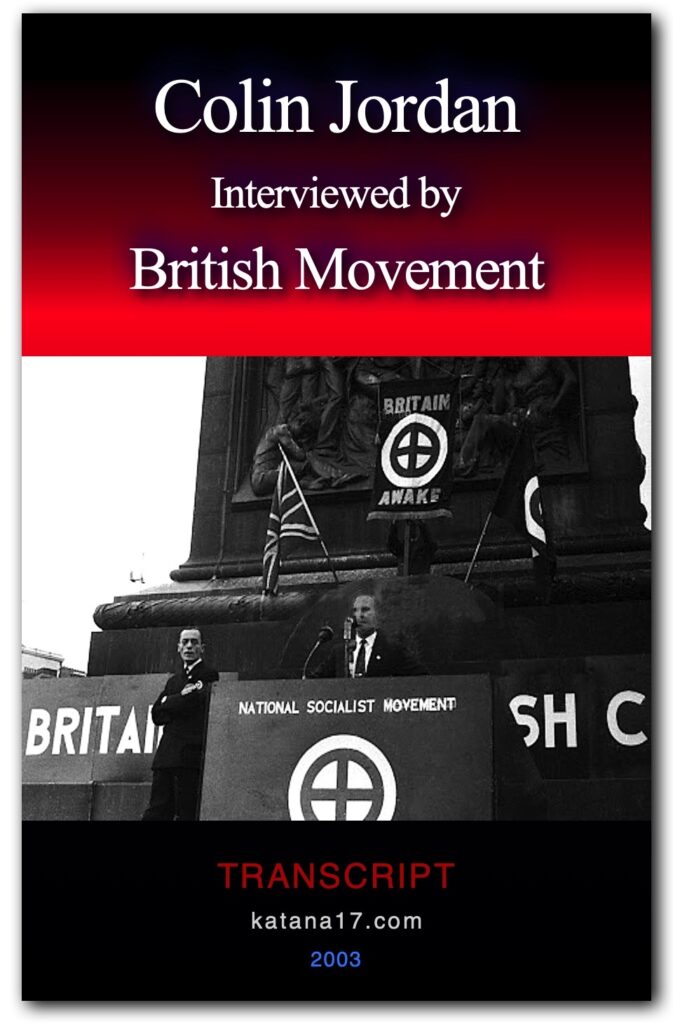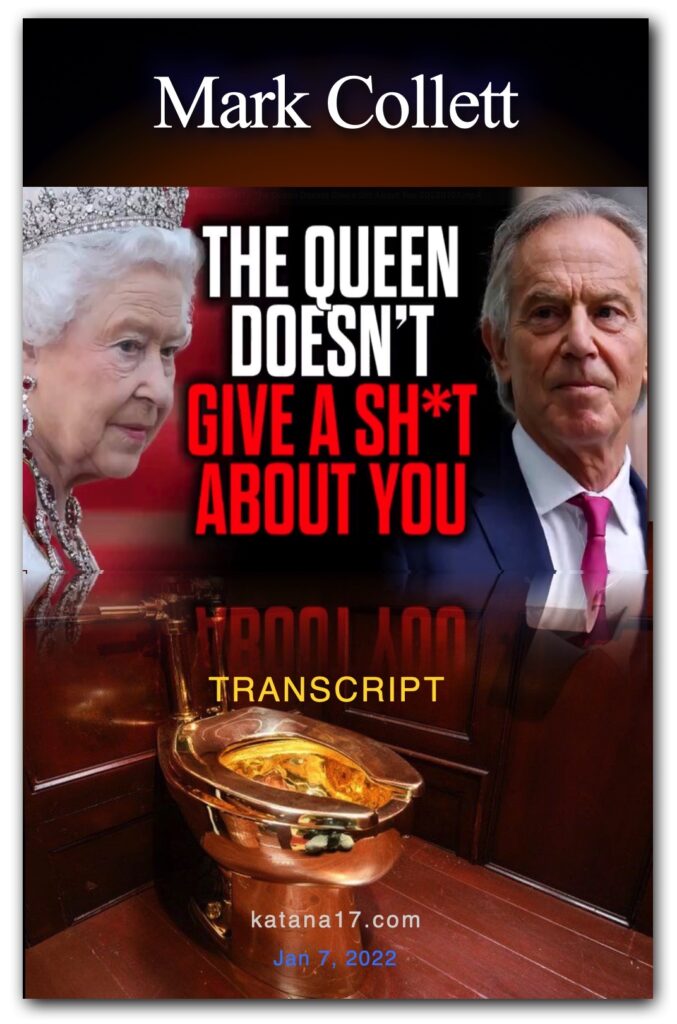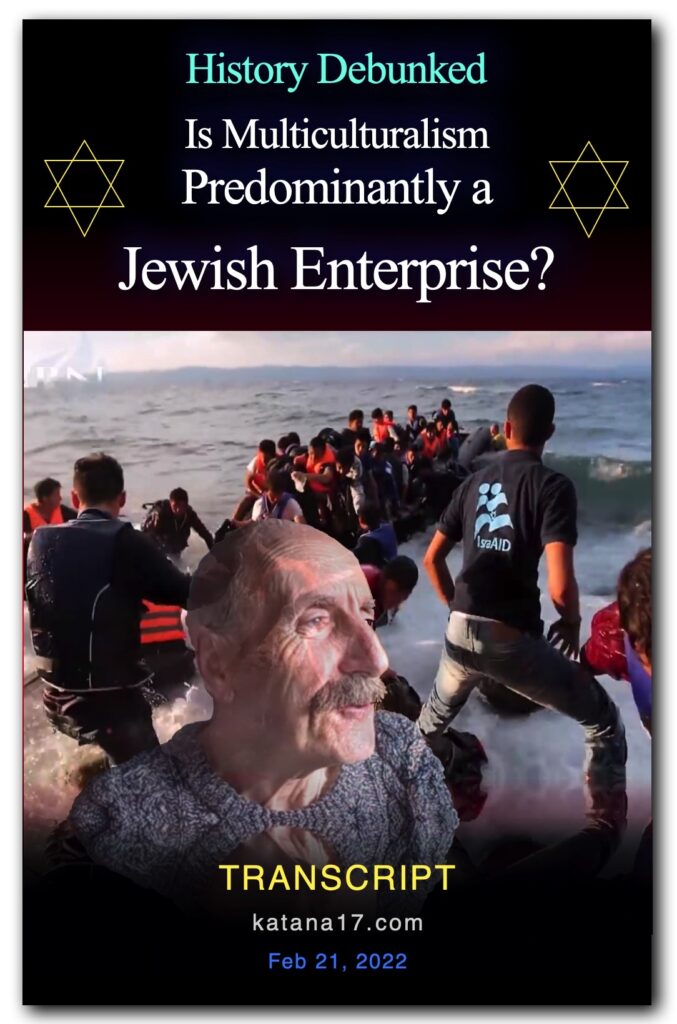[David Frost (in 1967) aggressively interviews Sir Oswald Mosley on his political life, his Black Shirts movement, the 1930s, Hitler and WWII, the “Holocaust”, the Orgjew push for another world war, anti-semitism, etc., all the while being heckled by some jews in the audience!
— KATANA]
David Frost
Interviews Sir Oswald Mosley
Nov 15, 1967
Click here for the video:
https://www.youtube.com/watch?v=7j5jJ-VYSps
YouTube Description
The Frost Programme: Interview with Oswald Mosley on 15 November 1967
Organon
TRANSCRIPT
(38:10 mins)
David Frost: Thank you. Thank you and good evening. Tonight our subject is Sir Oswald Mosley, whom many of you will remember. Sir Oswald.
I think that there are two pictures of you. One is of the brilliant economist, the possible future Prime Minister, man of wit and charm, who’s able to look ahead economically a good deal better than many of his political colleagues. All of that I could not take away from you, if I wished. And I do not wish.
The second is a confused picture of Mosley, the East End riots, fascism, anti-semitism. And all of that I want to talk to you about.
But first I want to begin on the economic front. What was your diagnosis of Britain’s economic ills, position, solution, briefly in 1930?
Oswald Mosley: Well, I think it’s good to begin there. Because really that is the origin of the whole trouble, or the whole business. And I’m afraid it’s now recurring. It is coming back, really.
The question was whether in the 30s traditional normal methods could deal with the unemployment problem or not. I was then a Minister in the government charged with dealing with unemployment. I produced a policy within that labour government, the Keynesian background, all his modern monetary theories, but a concrete, definite policy for dealing with unemployment. That is, to put to work about 7000 or 800,000 people at once.
And beyond that, there were plans for reconstructing the country and bringing us into a Commonwealth system which would permanently eliminate unemployment, and enable a balanced economy with a high purchasing power for all the people of the Commonwealth to be creating.
David Frost: Now, we all know about 1930, and at that time everyone indeed spoke when you made this diagnosis of your brilliant future and so on. You said in that what you were just saying, that it seems similar to you that things are coming back now. Why do you say, specifically, that the situation now is similar to then?
Oswald Mosley: Yes, I think so, and I’ll tell you exactly why. The basic trouble then quite different to the present situation was an overproduction in relation to the given market. That is, the purchasing part of the Western world was not sufficient to absorb the goods which industry were producing.
And at that time, as much in America, the technocrats as they were then called, who are highly paid engineers of American industry, were showing that the productive potential of America was so enormous that existing measures could not possibly absorb it. And as a result was unemployment, enormous unemployment there, and also here.
Temporarily, that was solved by the doubling of the gold price by Roosevelt, but very temporarily, because that was wearing off after three or four years.
Now, that’s not the only problem, that’s the general problem.
The particular problem was the inability of Britain in this top heavy island to sell nearly a third of its total production on the markets of the world in open competition. Originally, we had a monopoly position on the markets of the world. That was passing away and we were subject to intensive competition and failing to do it.
Now, these factors have been masked in the post war world, first of all by the armament boom before the war, then by the war itself, then by two small wars, Korea, and this new war in Vietnam, which of course absorbed an enormous proportion of world and American production in particular. And that has masked and concealed the situation completely. There’s been a world boom.
David Frost: And what are the political parallels now then?
Oswald Mosley: The parallel is on that situation of developing crisis. It’s only just beginning, so you’re only just beginning to feel the effects of that, it having been masked so long. But in that developing crisis, the government of the day does precisely what it did before that is coming in on a socialist or advanced program. It takes over at once the position of its opponents and applies conservative policies, even more conservative than the policies of the Conservative Party. And fails to meet the situation, holding the pound with deflation and all the old traditional measures and failing to meet it. That is why the situation now is exactly the same.
And then you get the call for devaluation and the rest of it, which may of course, occur at any time, not because they want it. The old lady never walks downstairs, she always falls downstairs!
David Frost: And when this crisis last emerged, you wanted a change of a form of government in this country to cope with it. What do you think is the ideal form of government for Britain today?
Oswald Mosley: Well, the first thing, if you want to do anything in the world, is to create a machinery to do it. I advocated in my resignation speech from the government, a machine of the civil servants, and businessmen, and others in Downing Street, which created in the modern term, a real powerhouse. They are now talking about doing something of the sort. But 30 years later.
The Daily Mirror wrote the other day, the powerhouse in Downing Street is one civil servant, one university Professor, and Colonel Wigg. Now they’ve lost Colonel Wigg. Back at square one.
David Frost: A frightful blow. But do you want to change the system today? Or do you think democracy is right for Britain today?
Oswald Mosley: That is the much larger question. I am absolutely convinced, for reasons I can give in detail if necessary, that Parliamentary control must be maintained, that is, that Parliament must be able, by vote of censure, to dismiss any government. Otherwise you may have people going mad and doing incredible things. We’ve had more than one example of that in recent years.
Therefore I am more than ever convinced it’s right to keep Parliamentary control. And when I gave evidence before the Parliamentary committee, soon after I resigned, I did insist then on Parliamentary control, subject to a right of government to act, so long as it retains the confidence of Parliament.
David Frost: Have you voted in a general election since 1930?
Oswald Mosley: I stood in a general election, yes. I stood in the last general election.
David Frost: Yes. But have you voted?
Oswald Mosley: No! I shouldn’t vote for either party.
David Frost: Because back in 1931, when you formed the new party.
Oswald Mosley: Yes.
David Frost: You had a great many influential supporters and so on. An impressive list at that stage. If you had, by some quirk, been asked to form a government in 1931, who would have been your principal ministers?
Oswald Mosley: Well, at that time, before I resigned from the government and immediately after, practically every young man that is, man under 50, young in Parliamentary terms, agreed with me. When I resigned from the government, made this speech, Conservative, Labour, Liberal, I can give names if necessary, but they’re well known. All agreed with me. But the for two reasons we could not get the consensus of the nation at that time.
David Frost: But who would have been your most important aides if you had formed a government in 1931?
Oswald Mosley: If I had formed a government in 1931 of young men on the Conservative side, far and away the ablest, I thought at that time was Oliver Stanley. Well, you hear very many other variable people.
For instance, McMillan at that time wrote a letter to The Times. It was very brave of him publicly supporting me. He mentions it in his memoirs. From the Conservative side, good many others, too. Anar [sp] Bevin signed my manifesto after I left the government.
David Frost: Labour.
Oswald Mosley: Labour and Liberals. The ablest of them, I think, at that time was Mond, afterwards became Millty [sp]. Not the old man, the ICI man, but his son.
David Frost: And do you think they would have accepted?
Oswald Mosley: Well, they did. They accepted my policy!
David Frost: And they would have joined your government?
Oswald Mosley: And if we had been in a position to form a government, which we were not, I think they would have joined. But we could not form a government because the party machines were still omnipotent. The party machines are immensely powerful in this country. And not until there’s a much greater crisis than there was then will that cease to be.
David Frost: Right. Now you have a position, you see, and here we come to it. That in 1931 you had a list of people, and an impressive list of people, who you felt would support you. Between then and probably 1930, 1935, those people deserted your movement, or deserted being associated with you.
And the main reason for that was that they were all convinced that you were anti-semitic, that you became anti-semitic. Why was that? Why did you let that impression get about? Why were you like that?
Oswald Mosley: That did not occur until sometime later. That was not the reason these people, …
David Frost: No. Well, in the first period, there was the first period when people left because your supporters seemed to be anti-semitic. And then the final, …
Oswald Mosley: No, I think that’s a slight confusion. They left me, that is, these well known MPs, the sort of people I’ve mentioned simply because we were coming to the election of 31, the triumph of the national government. The party machines were absolutely omnipotent, and no man who stood a chance, …
David Frost: Again, I’m talking about the way that your influential support in general slipped away. And it slipped away. And the reason that today people, when they hear you’re going to be on television or anywhere else want to watch, because they’re horrified by the prospect. The reason is that they are convinced and on the evidence I must say, I just don’t understand how you, why you, did this, or why you let it get about that you werec in that period and your movement, obviously was, but you were anti-semitic!
Oswald Mosley: Yeah. No. Well, I’ll deal with that. Certainly it’s very necessary to deal with.
David Frost: Well, deal with it now.
Oswald Mosley: Thirty two, when we started, 1932, anti-semitism was never mentioned. It was unknown to us. For two years the subject was never mentioned!
First time it was mentioned, Albert Hall, 34. And mentioned for one clear reason! Not anti-semitism. Because I contend and can prove that I’ve never been an anti-semite, who I define, as a man who’s against jews because they are born jews.
I, however, had a quarrel with certain jewish interests, not all jews, before the war, for a perfectly specific reason! I, rightly or wrongly, thought they wanted a war with Germany! Another World War! And I as an ex-serviceman, …
David Frost: And rightly or wrongly, did you?
Oswald Mosley: Rightly or wrongly, …
David Frost: Did you think it rightly or wrongly?
Oswald Mosley: I think it’s still right to say that some jews, many jews, for very good reasons, from their point of view, wanted a war with Germany!
David Frost: But you were not anti-semitic?
Oswald Mosley: I was not anti-semitic. And I defined it at the time. I have the evidence of it. You can prove it.
[11:178]
David Frost: Yeah. Now, I mean, just enlighten for me, because this would be valuable. What is the difference between your position, I mean, and it’s a tight one, and I’d like you to do it.
I think three quotes will suffice between your position and anti-semitism. The first quote was Bellevue, Manchester, where you said:
“The mention of the Empire makes the mob yell louder than ever. Let them destroy it if they can these jewish rascals. The red mob howls that we shall put them down. They are right. We shall put them down and we shall put the nation up.”
Then there was this one in 34, where you said:
“Behind the communist and socialist mob is the alien jewish financiers supplying the palm oil to make them yell!”
And in the third case, quoted again from a speech, you said:
“The great and powerful were afraid when our fascist movement opened it’s crusade against jewry. Up to three years ago, anti-semitism was unknown as a strong force in Great Britain. Today, in any audience in Britain, the strongest passion that can be aroused is the passion against the corruption of jewish power. It is not we who perish in the struggle!”
Now, what is the difference between those three quotes, particularly the last one, and anti-semitism?
Oswald Mosley: Yeah, I’ll tell you exactly. We were in the fight with the jews, or many jews. I won’t say all. A tremendous fight! And I hit them as they were hitting me with everything I’d got. When I talk about the jewish rascals was yelling at me, they were yelling at me and attacking my meetings with razors, bludgeons, weapons of every sort! And I had to organize the black shirt movement in this country in order to maintain order at all.
[Image: William Joyce received his face scar, from a razor, fighting with jews and others in London.]
David Frost: But you say, … Yes, I know all about that. But you say here that:
“We started our campaign against jewry, up to three years ago. Anti-semitism was unknown as a strong force in Great Britain!”
Doesn’t sound as though you disapprove of it very strongly.
Oswald Mosley: No. It was unknown until they came out, as I thought, and as I still think, for good reasons, from their point of view, to provoke a World War. I wanted to stop the war. They wanted to have the war! And we had a head on collision! I fought many men in the past about various things whom I don’t fight today. The folly is to continue a fight when the reason for the fight is over. Why battle with them for being jews? That’s why I’m not an anti-semite.
David Frost: But why, in that case, did you condone all the violence that was practiced by your supporters, in the 30s, against jews, going down into the East End?
Oswald Mosley: Now, wait a moment. Let’s look at that very closely. What meetings of other people were ever broken up by our people? It was our meetings were attacked! I’d had the largest meeting, …
David Frost: But you went down and held meetings in jewish areas in the East End. You marched through jewish areas!
Oswald Mosley: No!
David Frost: Provocation.
Oswald Mosley: That’s been stated again and again and is quite untrue!
David Frost: Anybody, …
Audience One: [words unclear]
Oswald Mosley: All right, I challenge.
David Frost: Can you turn a camera, …
Audience One: It was 200,000 East Londoners that stopped you marching through. The dockers, the clothing workers, the shop assistants, stopped you, and even the biggest police force they could muster couldn’t push you through. We beat you then and we’ll beat you again! And we beat your friend Adolf Hitler! But we were predecessors, …
David Frost: Can we just move this camera here a bit to one side so that, … Sorry, yeah, but so that Sir Oswald can see the person.
Audience One: Why would they, …
Audience One: I was making the point. Mosley at the moment tries to present himself as sweet and reasonable. He’s not anti-semitic? Here’s a picture of him in 1962 with the leader of the neo-Nazi party in Germany, rapidly calling for a re-division of frontiers. The leader of the Belgian fascists. The leader of the Italian fascist. And a face, … This was published in your fascist paper. That’s blacked out, or whited out, there it is [pointing to a photo he is holding]. There it is.
Who is this mystery man that you weren’t prepared to show in your own paper? A war criminal?
You are now busy going around Europe trying to rebuild your crooked cross international. You failed once, but you hope that the revival of German Nazis in Western Germany, the old gang coming out of their holes again, will give you another opportunity, even though you’re an old decaying element in this country!
[audience applauds]
David Frost: Okay, just a moment.
Audience One: There’s a picture of him, sweet and reasonable! Look at it! Trying to preach to the people of East London.
Oswald Mosley: Well, now you’ve had your speech, can I say a few words in reply? Now, it’s divided into two parts. Your question. First of all, you say I’m in alliance with anti-semitic elements in Europe.
And secondly, you say, I held provocative, or bullying marches through East London. I’ll answer the first point first. None of the men in that photograph are anti-semite, or ever have been! None of them! None of those parties, none of them! They’ve all specifically disclaimed it. Every single one of the men in that picture have declared against anti-semitism. And what you say is completely untrue!
Oswald Mosley: No, I was not his ally.
Audience One: [words unclear] [shouting]
Oswald Mosley: Now you see how we had to fight for free speech. When you show pictures of me, when you show pictures of me in uniform, it was because men like you came by the score to our meetings. Enormous meetings, like that in Exhibition Hall, London, 30,000 people are coming to listen to us, which was in perfect order, because we’d stopped people like you breaking up the meetings. And I did that with the Black Shirt movement. And I’m proud to have organized and led the Black Shirt movement to restore free speech to Britain!
[Parts of the audience breaks out shouting.]
Audience One: Heckling is part of the British tradition! And until, …
Oswald Mosley: Heckling was not something done. Shouting down, which is what you’re doing. Shouting down!
Audience One: No heckler had ever been beaten, and kicked, and had bones broken, and sent off to hospital! Never! Not since the ancient times. But, you started a fashion that you learnt from your friend Adolf Hitler! You thought the anti-semitic, …
David Frost: Just a minute. Let him answer.
Oswald Mosley: You want to bring the meeting, as your friends often tried before, to a close and stop the speaker, either of the speakers, having their say. And that is why we organized to put people like you out, when you denied free speech in Britain! And it was a right and proper thing to do! And they were magnificent young men, and I’m proud to have led and organized them to put people like you out at a meeting!
[The audience member continues to try and shout over Oswald]
Yes, very well. You will not allow other people to speak! And you are doing here what you’ve always done, denying free speech to other people. And that is precisely why I put the people like you out of our meeting. And I do it again!
Now, do you want? Do you want to hear the answer?
[Audience applauds the heckler.]
David Frost: Look, let him answer [directed at the heckler]. You’re arguing his case by not letting him speak.
Oswald Mosley: Yes, you proved the case very well. Thank you. As Mr. Frost points out [slight applause from audience]. Now, oh yes, you proved it very well with people like you, …
David Frost: Answer the question now.
Oswald Mosley: We’ll answer now. The thing we want to answer now is the question of East London, which Mr. Frost raised. And I should answer.
I have never marched through areas like White Chapel! Never held meetings in White Chapel. Since in 1931, a well known jew was my candidate there, so I had no need to march through. I stood in Bethel Green, or our people stood in the 37 election. We polled 23% in Bethel Green, 19% in Limehouse and 14% in Shortage [sp]. Are you seriously contending that we had no right to hold meetings in areas where we got votes like that?
Audience One: May I deal with that?
David Frost: No, just a minute, I want to just follow up this for 1 second. You were saying in answering all that, you were talking about where you marched and where you didn’t march. And that you were not anti-semitic. And I must say I’m not convinced on that point.
However, let us talk also, in addition to being non-convincing there, on the subject of your supporters.
There is no doubt, there is no possibility of denying the fact that people who said they were supporters of yours engaged in vicious, provocative acts, against jewish people in the London area. Did you ever dissociate yourself from that conduct? Did you dissociate yourself?
[20:06]
Oswald Mosley: Yes!
David Frost: When?
Oswald Mosley: Not only did I, … By expelling them from our movement!
David Frost: All of them?
Oswald Mosley: Anybody we found doing that was expelled at once! Because it was not allowed! For one thing, …
Audience One: [word unclear]
Oswald Mosley: Yes, he was expelled from our movement. I threw him out. Thank you very much. I threw him out three years before the war, for that reason, among others. People were expelled who did that kind of thing! And we maintained our position of fighting fairly by political means, winning votes in East London, as we won votes everywhere at that time!
Audience One: On the basis of stirring up race hate! On the basis of appealing to the lowest instincts of people! In the same way as Hitler won his mass support by dividing people! Saying the jews are to blame and not anybody else! You thought you’d use the same tactic!
Oswald Mosley: Not at all. Do you want the answer, or do you want to shout?
Audience One: I’d like to have the truth, instead, …
David Frost: Please be quiet!
Oswald Mosley: I fought some jews, because I thought and I still think they were trying to make a war with Germany! And yes, in the 1930s they were doing it! From 1934 till the end!
Audience One: [words unclear] [shouting]
Oswald Mosley: And they came out, they came out in, ….
Well, that man is proving my case up to the hilt! That’s the sort of thing we’d have had the whole time. Never a word of reason or argument heard! Like I’m trying to have with Mr. Frost. Because people like that are imported to make free speech impossible. He’s proving my case, up to the hilt!
Now, as far as I and Hitler go, the answer is this. I declared in a speech in 1934, which I think was one of the speeches from which quotations have been made, that we could never have any racial policy in Great Britain because we were running a multiracial empire. The German problem was completely different.
Audience One: [words unclear] [shouting]
Oswald Mosley: The Germans were anti-semitic, and I was not!
Audience One: What about this?
Oswald Mosley: You can show anything you like. It’s all on public record. We certainly have always been against the import of aliens, not only jews, but people from abroad, into the overcrowded housing areas of Britain, while our own people had no houses to live in!
David Frost: Right.
Oswald Mosley: So I was against it then, and I am now!
[22:25]
David Frost: Right. Sir Oswald. So okay. Now, in all of this, you’ve been going on about all of this, and you’ve been dealing with the various points that have come up. But now you are saying absolutely, definitely, that anybody who was guilty of anti-semitism was expelled from your party, and so on. How can you possibly say that as if you expect people to believe it, when everybody who watched the events of the 30s, whoever you talk to, knows and associates your party totally, with racial hatred, and anti-semitism?
Either what you’re saying is not true, or you were the most ineffectual, put upon, unable to impose his leadership on a party, leader that has ever been seen!
[loud applause from audience]
Oswald Mosley: That is a quite false dilemma. We were in a fight! I should not expel every man who was fighting with jews in the street, particularly if they attacked us with razors and other weapons! We were in a fight! That’s why we wore uniform in order to deal with men like this, who broke up our meetings by organized violence!
Audience One: [words unclear] [shouting]
Oswald Mosley: And, of course, I would not expel Black Shirts who fought jews in the street, when they were attacked by jews! What I would expel is a man who went around saying that we should deal with all jews in a horrible fashion. He would mistreat them, or bully them. Not at all!
We were fighting jews for one reason to stop a war with Germany! As an ex-serviceman of the first war, in air and trenches, I was determined to stop another war if I possibly could!
Audience Two: May I deal with it?
David Frost: All right.
Audience One: May I deal with this?
David Frost: No. Let someone else speak. Gentlemen in the third row.
Audience Three: You say you are never anti-semitic except the jews individually. What did you think of von Streicher*, who was the most rabid anti-semite in the history of the world?
[*Der Stürmer was a weekly German tabloid-format newspaper published from 1923 to the end of the Second World War by Julius Streicher, the Gauleiter of Franconia, with brief suspensions in publication due to legal difficulties.]
Oswald Mosley: Streicher? Streicher. Well, he, not only he, but the whole German party was anti-semitic! That is, they condemned jews because they were born jews!
[Image] Julius Streicher
Audience Three: Streicher sent you a Telegram.
Oswald Mosley: No, that’s not proved. I’ve had that before. I have absolutely no recollection of it.
Audience Three: [words unclear]
But wait a moment. Wait a moment! If it was true, which it didn’t, I was trying to keep peace with Germany. That is why twice in the 1930s I went to Germany. And I don’t care what a man’s politics are, or what his opinion. I’m not going to sacrifice young English lives because I don’t like his politics or his opinion!
Audience Three: May I read your Telegram to Streicher?
Oswald Mosley: No. First of all, I don’t believe it to be true. You can read it if you like. I don’t care. But it is not a true Telegram. And if it was, I wouldn’t mind.
Audience Three: The Telegram reads:
“I greatly esteem your message. In the midst of our hard struggle, the forces of jewish corruption must be overcome in all great countries before the future of Europe can be made secure in justice and peace. Our struggle is hard, but our victory is certain!”
And the Manchester Guardian, and the German paper, printed this Telegram and you never at the time denied it!
Oswald Mosley: Well, would you like to have the answer?
Audience Three: [words unclear]
David Frost: No.
Oswald Mosley: Would you permit me to reply? No, you won’t.
David Frost: Will you please be quiet?
[25:56]
Oswald Mosley: No, you won’t permit me. Right. Now the answer is this, as I’ve already told you, we were in a fight with those jewish interests in this country in order to stop a war with Germany! And anyone in any country who supported us in that, I would send a greeting Telegram, too. Although I think I did not send a Telegram at that time! Anyhow, it doesn’t matter.
David Frost: Sir Oswald, I think that the main point to emerge from that first half, when voices were not indeed speaking in concert, was the feeling that seems to be absolutely general among this audience about the way they see your campaign in the 30s. And in the same time, the way that they see your relationship with Hitler, as a damaging fact.
If Hitler had survived at the end of the war, would you be in favour of his being tried and convicted for war crimes?
Oswald Mosley: Yes. I think anyone who has committed crimes should always be tried, under whatever law exists.
David Frost: And would you have thought that he would have been, and should have been, found guilty?
Oswald Mosley: I have said again and again that the murder of the jews in the concentration camps was an outrageous, and vile crime. I’ve said that again and again.
[Audience member: You deny it!]
David Frost: When did you first say that?
Oswald Mosley: Ever since the war. The moment I was convinced that it had happened.
[Audience heckling loudly]
David Frost: Just a minute, please.
Oswald Mosley: That’s quite untrue.
David Frost: When did you first say, admit this fact, about the jews in the concentration camps?
Oswald Mosley: Very soon. Very soon after the war. I think. When the Nuremberg trials had taken place. When the evidence was clear. Quite frankly, when I first saw it, I did not believe it. I then saw not only the results of Nuremberg, but I saw German friends. And while I don’t think nearly so many were killed as were supposed to be killed, that doesn’t matter! It doesn’t matter! Because any crime, the murder of any defenseless prisoner is a crime! And everybody must detest it, particularly professional soldiers. I was brought up as, one must despise and detest the crime of killing defenseless prisoners!
David Frost: Yes, but I mean, the thing is that, and not just prisoners, but the jews in general. But I mean, as late as 1947 you were telling press conferences you were against the Nuremberg Trials and you didn’t believe it. So it clearly wasn’t as soon after the war as you say, but clearly you were backing, …
Oswald Mosley: Can I deal with that? The Nuremberg trials. I am against people being judge, jury and prosecuting counsel in their own court. You ought to have an impartial tribunal and everyone, on each side, who’s committed crimes ought to be tried. What about the people who dropped a bomb on Hiroshima when the war was over? Is that not a crime? Is all crime to be one sided? Is morality a one way street? Where are we getting in all this humbug?
David Frost: I don’t think, actually, that Nuremberg trials can be described as humbug and nonsense. They seem to be dealing with a fairly serious subject.
Oswald Mosley: Humbug and nonsense if it’s one sided.
David Frost: But it wasn’t one sided. You’re saying now that you, in fact, in the 30s backed and imitated a man who turned out to be a monster?
Oswald Mosley: No! Imitation is completely untrue!
David Frost: All right, let’s just take a look at this piece of film.
Oswald Mosley: Can I answer that point?
David Frost: Well, you can just watch the film first.
Oswald Mosley: Right.
[Film of Mosely walking among a crowd of applauding supporters, giving the “Roman salute”, and then speaking]
“Sooner or later in the lives of great nations comes the moment of decision! Comes the moment of destiny! And this nation again and again in the great hours of its fate has swept aside convention, has swept aside the little man of talk and of delay, and have decided to follow men and movements! That day we go forward to action, let who dare follow us in this hour! That is the permanent almighty mood of Britain. And I came that in the ranks of our black shirt legions, [word unclear], and mighty ghosts of England’s past are [word unclear] their strong arms around us, on their voices echo down the ages, saying onward!”
David Frost: That is one of two people speaking there. It’s reminiscent either of Hitler, or of Charlie Chaplin’s great dictator. Which is it?
[Audience laughs and applauds]
Oswald Mosley: Oh? That’s a very smart question. Personally, I think it’s a very good speech about England’s greatness. To which we’ve all just listened. I’m very glad, …
David Frost: What’s all that business? [giving the “Roman salute”]
Oswald Mosley: But don’t, you know what that is? What an incredible question! That is a salute 2,000 years before Hitler was born.
David Frost: Of course it was a salute 2,000 years. But whose salute was it in the 30s? Whose salute was it in the 30s!
Oswald Mosley: First Mussolini and then Hitler.
David Frost: And who is it reminiscent of there? Everyone in that audience, …
Oswald Mosley: Are you saying that Hitler imitated Mussolini?
David Frost: No, I’m saying that everyone in that audience is not going to think, oh, there’s old Ossie [Oswald] imitating someone from 2000 years ago!
[Audience breaks out in laughter and applauds loudly.]
[31:21]
Oswald Mosley: Anyhow, that was the origin. And I think a good many people in England have enough historical sense to know why all the movements from the Renaissance in Europe adopted the European salute. Which wasn’t adopted by Hitler, Mussolini or anybody else, but was taken over by us all because it was a European salute! And because we were fighting against people who gave the clenched fist salute! And it was an answer to that!
An answer to the Communist International. The results of which you’ve seen recently and the support of the old parties for people like Philby, MacLean, and the rest of it. And that’s what we were fighting, and giving the salute of European manhood. And I’m proud of it!
David Frost: In other words, fine words and we can all take them at their face value. In other words, would you say that the wrong side won the war?
Oswald Mosley: No, certainly not. I’m for my country, and offered to fight for my own country, as I’d done before.
You people come along now and talk as if we’d never fought for Britain. I fought for Britain in the air, and I fought for Britain in the trenches! And I offered to fight in the last war the moment the life of Britain was at stake! And yet I claimed the liberty, I claimed the liberty to persuade the British people by my voice, if I could, to make peace! I claimed that liberty! And it was denied me by putting me in jail to stop me making speeches!
David Frost: And on balance, would you say that Hitler, it was better, or would have not been better, if Hitler had ever existed?
Oswald Mosley: No, certainly better that he should not ever have existed, because his existence led to 25 million Europeans being killed! And if I had my way, those 25 million would be alive today, including 6 million jews who never would have been killed if there hadn’t been a war! They made the greatest mistake they ever made when they produced that war!
David Frost: And who was most of all responsible for the 1939 to 45 war?
Oswald Mosley: I’ll tell you exactly. Hitler began it by driving east. And he would undoubtedly have destroyed Communist Russia in so doing! We intervened and declared war to prevent him doing it!
And the result is that Britain today is tossed to and fro between America and Russia. We’ve lost the empire! We’ve lost our position! And we had 25 million Europeans killed! And I’m prouder than anything in my life of having done my utmost to stop that suicidal war which has destroyed Great Britain!
David Frost: And you would, in fact feel, you said in 39, so you said those incredible words in 1939.
Oswald Mosley: Tell me what they were.
David Frost: Where you said that this was:
“Simply a jewish financier’s quarrel.”
You don’t think at that time we had a moral choice to take, as to whether we were going to try and prevent all that Hitler was doing?
Oswald Mosley: A clear and fair question, which I’ll certainly answer. No, we had not! And I’ll tell you why.
When Mr. Gladstone wanted to have a war with Turkey in order to stop the Armenians being badly treated, the leader of the opposition. Mr Disraeli, a jew, opposed him with success. And that’s traditional British policy. If we run around the world fighting wars for anyone who’s having a bad time anywhere, you will never have peace for the rest of your time. And you’ll have world death because now you’ll fight with nuclear weapons.
David Frost: Now we come to the crunch point.
Oswald Mosley: Please.
David Frost: We started at the beginning with the story of a man who was in 1930, promising. Who could have been a future prime minister. Who made a gigantic miscalculation in 1931 in thinking he could form his own party and carry the country with him.
Who then, in order to somehow give the fuel for that movement, allowed it to become the vehicle, let’s be very euphemistic about it, the vehicle for a great deal of racial hatred and anti-semitism! That kept the movement going. It wouldn’t have got kept going, but it destroyed it.
Now, why a man as promising and as intelligent as you, couldn’t you see that the decisions, or lack of decisions of you in the 30s were in the short term, evil! And in the long term totally disastrous! So that today you’re either a hated, or a joke figure! You can never regain that lost ground. Why did you make that mistake? It’s a personal tragedy.
Oswald Mosley: Let me take you up on that. I have dealt with the jewish question. But of course, it wasn’t that in the slightest which got us going. It was unemployment. You never heard of unemployment? There was terrific unemployment! That was the origin of our movement and of these movements in every country. Unemployment! Vile housing! The other failure of government to do it!
And that’s why I got going! And I was right when I could not get the old parties in Parliament to act to try to form a new movement. And I was right, in my view, to try to stop the World War!
David Frost: And today you have nothing to show for it. And when your candidates stand in elections, they try and choose in 66, the three areas where they can capitalize most on racial unrest, and they end up with an average of just over 3% of the votes. There’s nothing left to show for your movement. What went wrong?
Oswald Mosley: That, again, is quite untrue. There is no racial problem of where I stood. Whatever! Absolutely none!
David Frost: 3%.
Oswald Mosley: I polled 4.8%. Not 3%.
David Frost: You polled four point, … Just a minute. You polled 4.8%. Just a minute, please. Just a minute. 4.8%. A colleague of yours, 4.6%. And another two point, …
Oswald Mosley: We averaged 3.7. We averaged 3.7.
David Frost: That’s fair.
Oswald Mosley: And if you must talk so much about Hitler, who doesn’t interest me very much, we pulled just about double what he did five years before he got power. So don’t be too cocky about that!
David Frost: And do you think one day you may still get power?
Oswald Mosley: Well, there are two ways of getting power. One is by, …
Audience One: [words unclear]
Oswald Mosley: Now we’re getting to the point, which, of course, you want us to miss. Now, there are two ways of getting power. One is by a consensus of the people of the nation, and agreement of everything vital in the country coming together, which I strove for before, and believe we can now possibly attain in the coming crisis.
The other way is to build up a grassroots movement of the people. But never do it until the first method has failed. In life, always try to do things gently, and only get tough when you have to get tough!
David Frost: All right. And with Sir Oswald Moses message in life, always try to do things gently. We’ll say goodnight.
[37:49]
[Outro music]
[38:10]
[END]
============================================
See Also
Colin Jordan Interviewed by British Movement – 2003 – Transcript
Mark Collett – The Queen Doesn’t give a SH*T About You – Jan 7, 2022 — Transcript
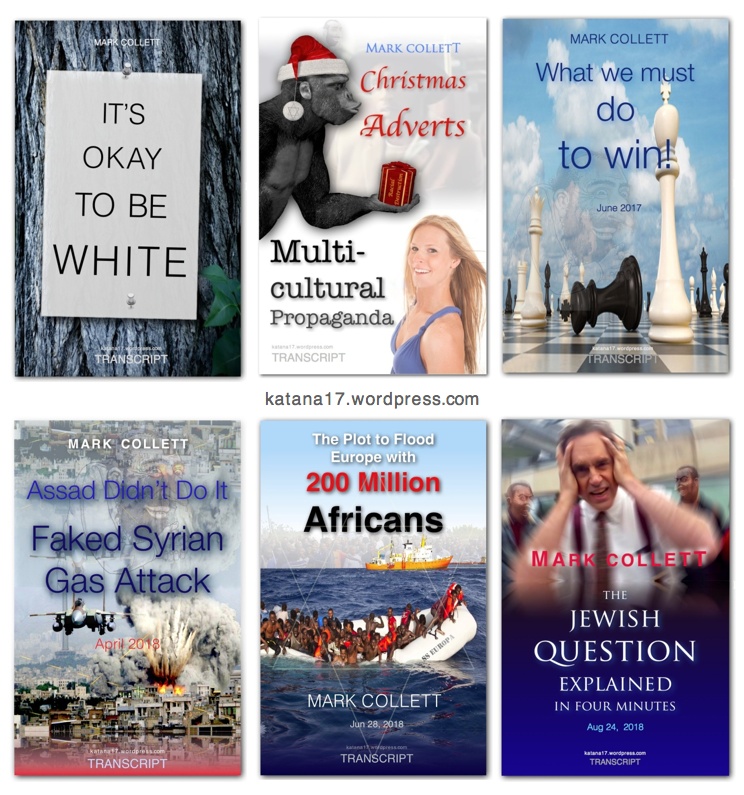
Mark Collett — It’s Okay To Be White — TRANSCRIPT
Mark Collett — Christmas Adverts – Multicultural Propaganda — TRANSCRIPT
Mark Collett — What We Must Do To Win — TRANSCRIPT
Mark Collett — Assad Didn’t Do It – Faked Syrian Gas Attack — TRANSCRIPT

